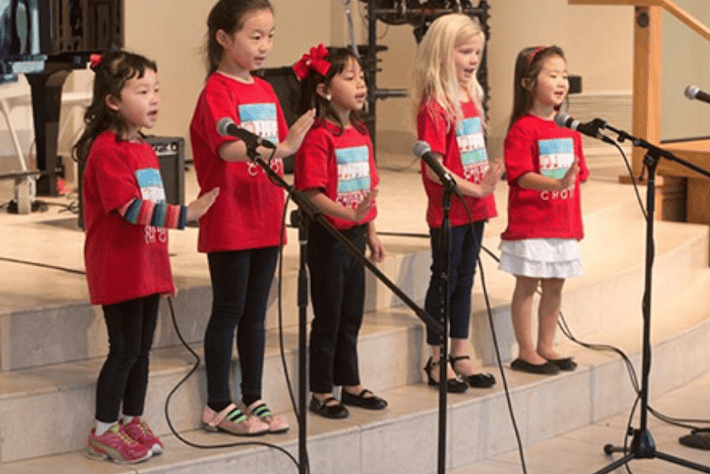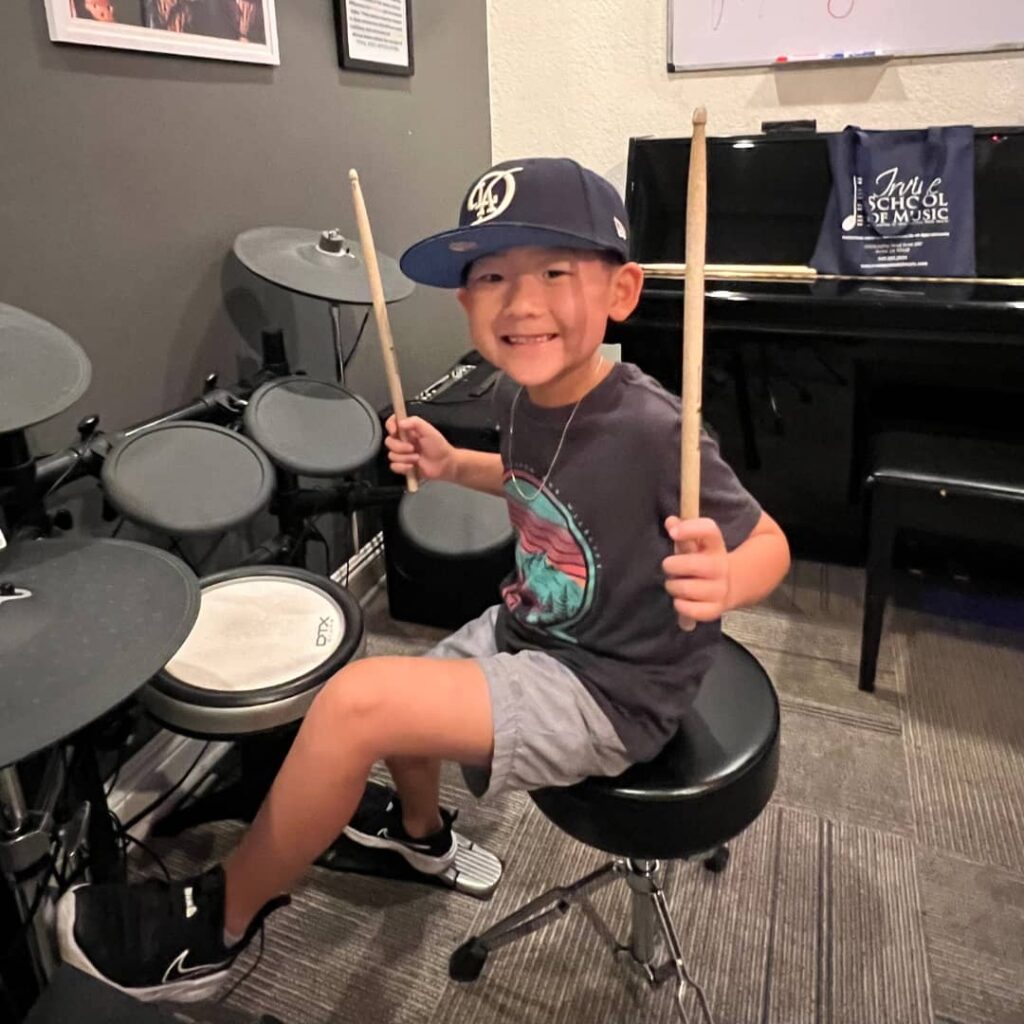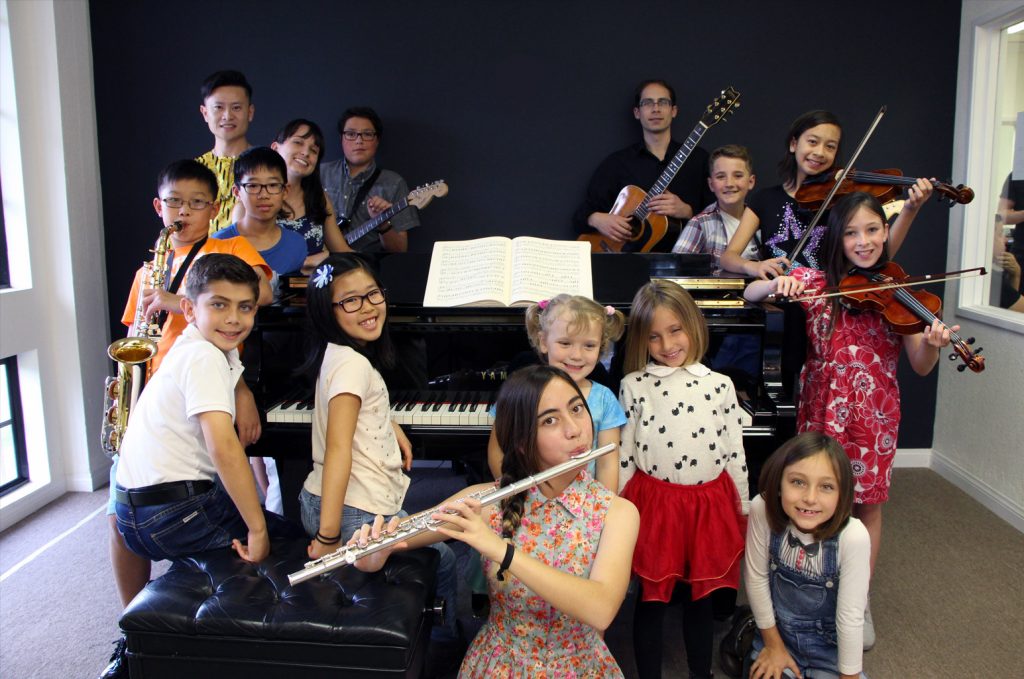Benefits of Music
Music gives us possibilities for self-expression rivaled by few forms of art and communication. It is a miraculous gift for ourselves, our children, friends, and audience. Music can heal, it can connect people, and it can provide entertainment or spiritual fulfillment for a lifetime. Not surprisingly, music changes lives. We would like to share with you just some of the many beneficial “side effects” of music study:
12 Important Skills Your Child Learns By Studying Music
- Self-Confidence – Being able to go from learning notes and rhythms to producing meaningful music instills in your child a sense of accomplishment and self-confidence, while building self-esteem.
- Coordination – Hand, eye, body posture and thought all working together are the ingredients of playing an instrument. These coordination skills transfer to many other aspects of life.
- Teamwork – Every child wants to be part of a group. Group performances and recitals provide just such unique opportunities.
- Comprehension – Learning to perceive and derive meaning from musical sounds sharpens your child’s ability to comprehend abstractions.
- Problem-Solving – Learning the basics of musical language and interpreting a work through performance teaches your child the ability to understand a problem and reach an appropriate solution.
- Discipline – Learning all of the basics of music and applying them correctly takes perception and discipline.
- Art Appreciation – The words beauty, serenity and excitement come to life with each musical experience. These feelings help every child appreciate all forms of the arts.
- Logical Reasoning – When your child learns to analyze a musical work from all perspectives or to improvise within a certain musical style, both inductive and deductive reasoning grows stronger.
- Communication – Music offers the ability to cultivate our feelings and thoughts through nonverbal means and to respond to these nonverbal thoughts in others.
- Conceptualization – Your child learns to classify by learning to identify different types and styles of music and to recognize how cultures use music for personal expression.
- Making Value Judgments – Learning to comprehend, consider and evaluate in music can help your child make informed decisions and uphold value judgments in other aspects of life.
- Using Symbols – Learning to read, write and interpret musical notation strengthens the use of other symbol systems such as mathematics and language.
And did you know…….
Music majors are the most likely group of college grads to be admitted to medical school. Physician and biologist Lewis Thomas studied the undergraduate majors of medical school applicants. He found that 66 percent of music majors who applied to med school were admitted, the highest percentage of any group. For comparison, (44 percent) of biochemistry majors were admitted. Also, a study of 7,500 university students revealed that music majors scored the highest reading scores among all majors including English, biology, chemistry and math.
Sources: “The Comparative Academic Abilities of Students in Education and in Other Areas of a Multi-focus University,” Peter H. Wood, ERIC Document No. ED327480?”The Case for Music in the Schools,” Phi Delta Kappan, February, 1994.
TEN-YEAR STUDY SHOWS MUSIC IMPROVES TEST SCORES
Regardless of socioeconomic background, music-making students get higher marks in standardized tests.
MUSIC LESSONS HELP STUDENTS MORE THAN COMPUTER TRAINING
Research shows piano students are better equipped to comprehend mathematical and scientific concepts.
MUSIC TRAINING HELPS UNDERACHIEVERS
Regardless of socioeconomic background, music-making students get higher marks in standardized tests.
PIANO BOOSTS STUDENT MATH ACHIEVEMENT
Regardless of socioeconomic background, music-making students get higher marks in standardized tests.
MUSIC STUDENTS SCORE HIGHER ON SATS
In both verbal and math scores, high school student-musicians outpace peers.
SUBSTANCE ABUSE LOWEST IN MUSIC STUDENTS
College-age musicians emotionally healthier than non-musician counterparts.



